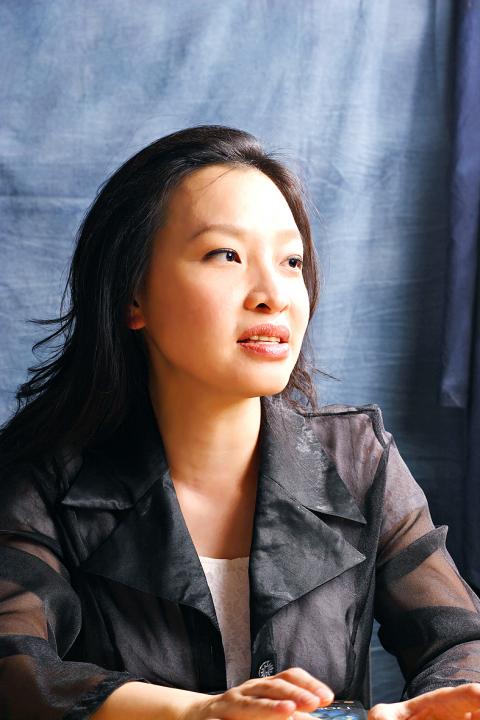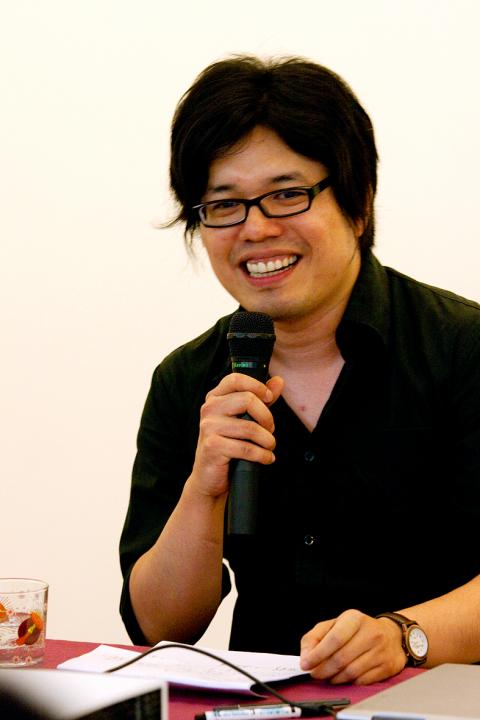While the Golden Horse Awards (金馬獎) handed out accolades last month to high achievers in the movie industry, the Golden Shrimp Awards (金蝦獎), a new endeavour that aims to honor the worst of the worst, has released its roll call of shame.
The word “shrimp” (hsia, 蝦) was chosen because it is a Mandarin homophone for blind (瞎), which can also mean thoughtless and stupid. For the first edition, four jurors, including noted film critics Ryan Cheng (鄭秉泓) and Regina Ho (何瑞珠), chose nominees from Chinese-language films released between October last year and September this year in Taiwan.
Netizens were asked to cast votes, and the full results will be made public today.

Photo: Bloomberg
Among the contenders, Seediq Bale 2 (賽德克‧巴萊下) picked up the Worst Moment Award for its unpolished CGI effects, Hong Kong director Christopher Sun (孫立基) won the Worst Director Award for his erotic 3D film 3D Sex & Zen: Extreme Ecstasy (3D肉蒲團之極樂寶鑑), and Taiwanese director Chu Yen-ping (朱延平) bagged the Worst Film of the Year Award for his Just Call Me Nobody (大笑江湖).
Backed by government funding of NT$20 million, Just Call Me Nobody is a dreadful movie full of embarrassingly dated jokes. Its box office takings in Taiwan amounted to about NT$1.4 million.
Films funded by government subsidies did particularly well in the Golden Shrimp Awards.

Photo courtesy fo Regina Ho
“I have reviewed Taiwanese movies [for the past decade], and each year I come across lots of terrible movies subsidized by the government. The same thing happens year after year. And I think, not as a film critic, but as a taxpayer, that the whole situation should be subject to public debate and discussion,” said Ho, a senior reporter at the CTI Television Incorporation (中天電視公司) and film critic who writes for publications including Next Magazine (壹週刊) and Eye-Movie (台灣電影筆記).
According to statistics compiled by Ho from the Government Information Office (GIO, 新聞局), other poorly performing subsidized films include Who Is the Murder (人不是我殺的, 2004), Wolf (狼, 2005) and Down to Love (好想談個戀愛, 2006). Who Is the Murder broke the box office record for the lowest grossing film of all time, raking in some NT$3,960 in Taipei.
Meanwhile, The Treasure Hunter (刺陵), released in 2010, fared a little better. But in addition to a production subsidy of NT$25 million, taxpayers also paid NT$4 million to promote the cinematic blooper, which stars Jay Chou (周杰倫) and Lin Chi-ling (林志玲).

Photo courtesy of Ryan Cheng
“You don’t have to be a reporter or a film professional to see that there is something very wrong with the system,” Ho said.
Cheng says that subsidies should aim to encourage “diversity,” and not be used to make repetitive genre flicks such as Dancing Without You (背著你跳舞), The Tempests of First Love (初戀風暴), Will You Still Love Me (你是否依然愛我) and Me, 19 (我,19歲), all of which were nominated for Golden Shrimp Awards.
Ho, on the other hand, believes that subsidies should be scrapped altogether.
“Movies are products. If you want to expand the market, you don’t give money; you invest … People in the industry have to find the market themselves. If there are funds for screening and marketing, they don’t even need to have audiences,” she said.

Towering high above Taiwan’s capital city at 508 meters, Taipei 101 dominates the skyline. The earthquake-proof skyscraper of steel and glass has captured the imagination of professional rock climber Alex Honnold for more than a decade. Tomorrow morning, he will climb it in his signature free solo style — without ropes or protective equipment. And Netflix will broadcast it — live. The event’s announcement has drawn both excitement and trepidation, as well as some concerns over the ethical implications of attempting such a high-risk endeavor on live broadcast. Many have questioned Honnold’s desire to continues his free-solo climbs now that he’s a

As Taiwan’s second most populous city, Taichung looms large in the electoral map. Taiwanese political commentators describe it — along with neighboring Changhua County — as Taiwan’s “swing states” (搖擺州), which is a curious direct borrowing from American election terminology. In the early post-Martial Law era, Taichung was referred to as a “desert of democracy” because while the Democratic Progressive Party (DPP) was winning elections in the north and south, Taichung remained staunchly loyal to the Chinese Nationalist Party (KMT). That changed over time, but in both Changhua and Taichung, the DPP still suffers from a “one-term curse,” with the

Jan. 26 to Feb. 1 Nearly 90 years after it was last recorded, the Basay language was taught in a classroom for the first time in September last year. Over the following three months, students learned its sounds along with the customs and folktales of the Ketagalan people, who once spoke it across northern Taiwan. Although each Ketagalan settlement had its own language, Basay functioned as a common trade language. By the late 19th century, it had largely fallen out of daily use as speakers shifted to Hoklo (commonly known as Taiwanese), surviving only in fragments remembered by the elderly. In

Lines between cop and criminal get murky in Joe Carnahan’s The Rip, a crime thriller set across one foggy Miami night, starring Matt Damon and Ben Affleck. Damon and Affleck, of course, are so closely associated with Boston — most recently they produced the 2024 heist movie The Instigators there — that a detour to South Florida puts them, a little awkwardly, in an entirely different movie landscape. This is Miami Vice territory or Elmore Leonard Land, not Southie or The Town. In The Rip, they play Miami narcotics officers who come upon a cartel stash house that Lt. Dane Dumars (Damon)